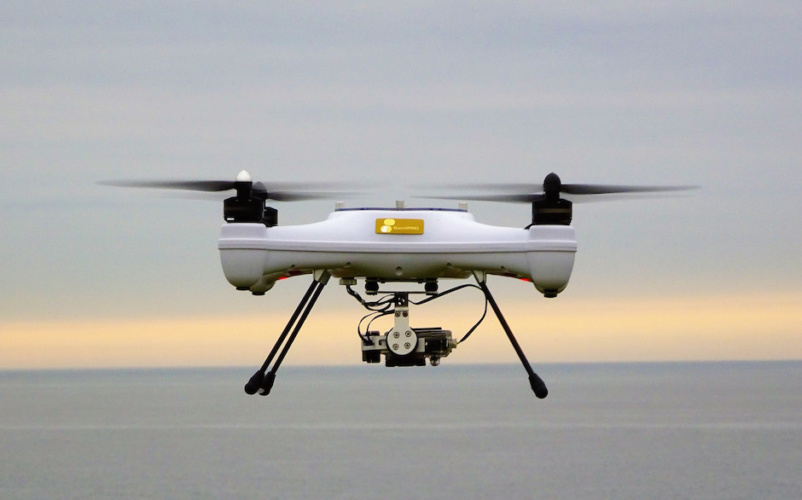Assessing renewable energy sites with drones
Scientists in Scotland and Wales are trialling a new method of measuring tidal currents using drones, aiming to ‘revolutionise’ marine renewable energy.

Led by researchers from the University of the Highlands and Islands, the project will use drones to film the movement of water then apply algorithms to determine its speed.
The team believes that the technique could provide a simple solution for identifying locations for underwater tidal turbines, reducing costs for renewable energy developers and generating opportunities for developing countries.
Current methods for measuring tidal streams rely on using survey vessels or installing seabed sensors, which can be time consuming and expensive.
Dr Benjamin Williamson, a scientist at North Highlands College UHI’s Environmental Research Institute in Thurso, said: “Measuring the flow speed and movement of water is vital for developing offshore renewable energy. These measurements are needed to predict the performance and inform the placement of underwater tidal stream turbines or to optimise the moorings and design of floating turbines.”
Register now to continue reading
Thanks for visiting The Engineer. You’ve now reached your monthly limit of news stories. Register for free to unlock unlimited access to all of our news coverage, as well as premium content including opinion, in-depth features and special reports.
Benefits of registering
-
In-depth insights and coverage of key emerging trends
-
Unrestricted access to special reports throughout the year
-
Daily technology news delivered straight to your inbox










Water Sector Talent Exodus Could Cripple The Sector
Maybe if things are essential for the running of a country and we want to pay a fair price we should be running these utilities on a not for profit...